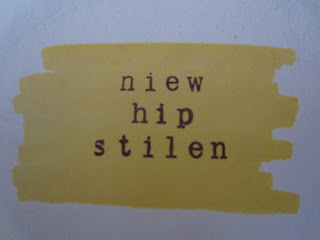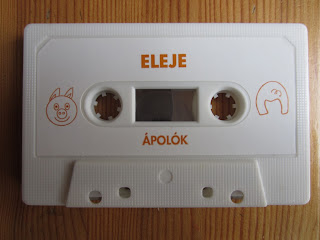Merry Christmas and an Archaic New Year to all followers of the blog!
Blacklight Braille was an ever morphing band from Cincinatti, Ohio led by musicians Owen Smith and Doug Knight. The band claimed their own style called "Fringe Rock". Once they described it in a very good and thorough interview from 1993 as:
"Music created
by rock musicians, yet not quite meeting the classical definition of
rock' n' roll. It differs to the degree that it might be said to fall
within an entirely different location, fringe rock. When we started,
we were doing a music that was so far out on the fringe that the beauties
were cryptic or hidden. It
is highly improvisational music created with the available technology,
and it searches for new and different musical instruments and sounds, You can't dance to it, but it does have elements of rock music."
Blacklight Braille made numerous albums on their own Vetco Records and started out in the mid-seventies as a collective of street performance artists and musicians under the name Bitter Blood Street Theatre. They acclaimed some underground fame in Cincinatti for their weird shows. Eventually they created the project Blacklight Braille with their first totally demented and experimental collage album Electric Canticles Of The Blacklight Braille in 1981.
Later on Blacklight Braille was also picked up by the international deviant music scenes through the many albums that they distributed to radio stations worldwide. Besides their Fringe Rock music they also started to incorporate the somewhat occult fascination for British King Arthur and the Arthurian Legends. The musical influences became even more diverse and were now being accompanied by oral stories and poetry, regularly dealing with the Arthurian Legends.
The Carbonek Album, (Castle Carbonek is the place where supposedly the Holy Grail is kept) is a strange Arthurian concept album in which the world of Arthurian legends unfolds. About ten different people are part of the band for this occasion and the album goes into many directions, ranging from electronic ambient synth sounds to the new age sounds of fountains to dark experimentation with spoken tales. It has a humorous yet serious approach always keeping a pace with Arthurian atmospheres and concepts with tracks like The Fountain Falling From The Ace Of Cups, The Gift For Galahad and Guinhwyvare The Tall And Fair. It sort of reminds me of later work by Legendary Pink Dots, although more demented in approach. Also It makes me think of Big City Orchestra and their vast discography of albums.
Blacklight Braille is another one of those great US bands that is very much overlooked considering their unique music and the efforts they have put in their albums. Look out for the rest when you can!
Path to the Holy Grail over HERE




















































